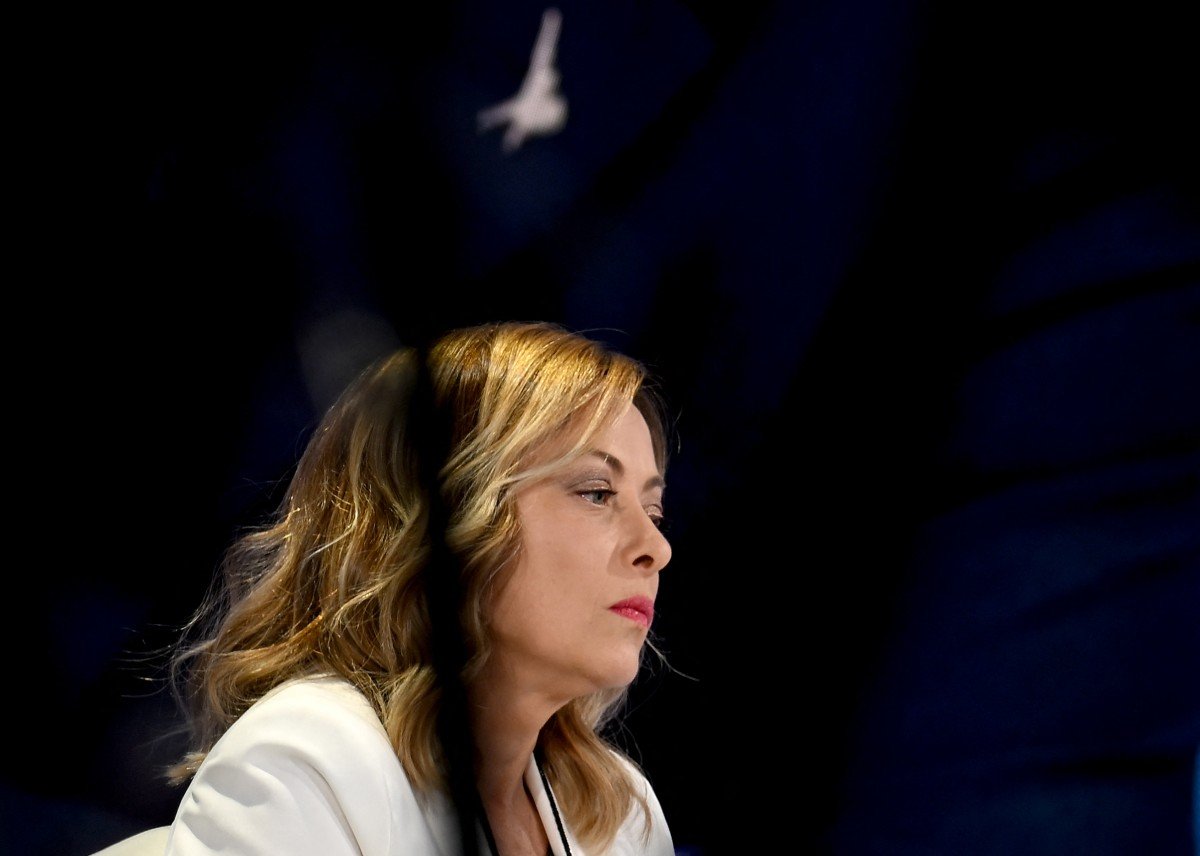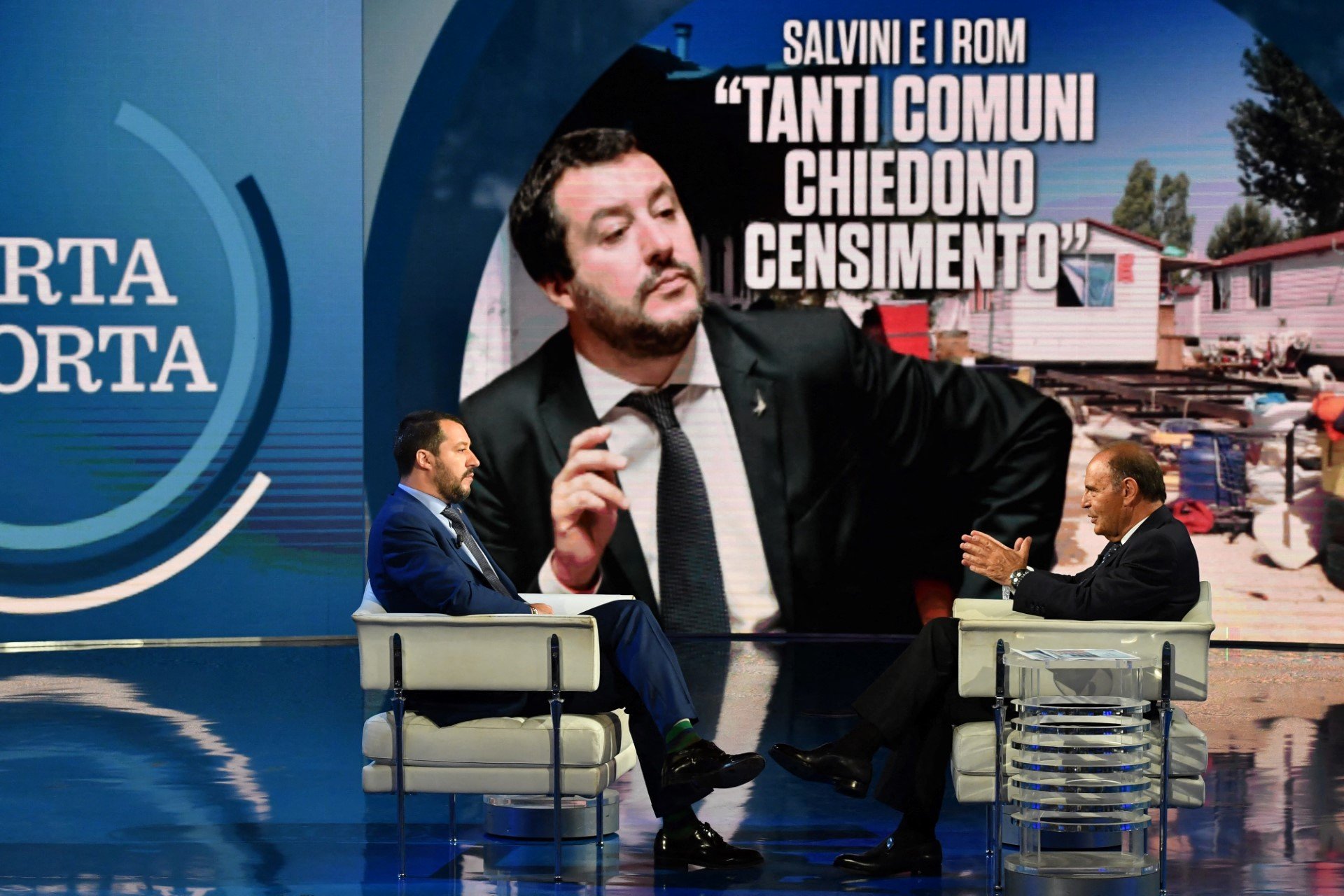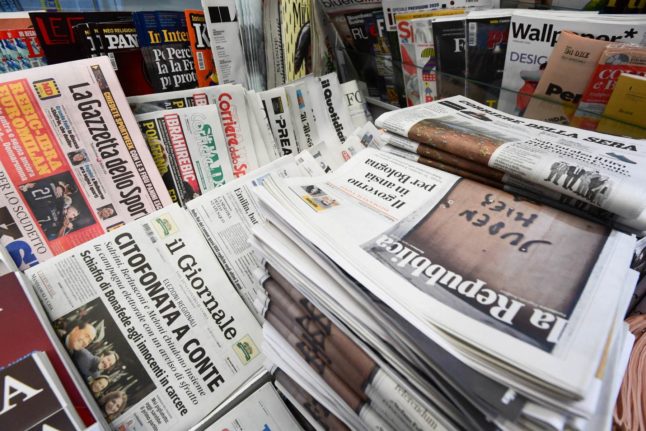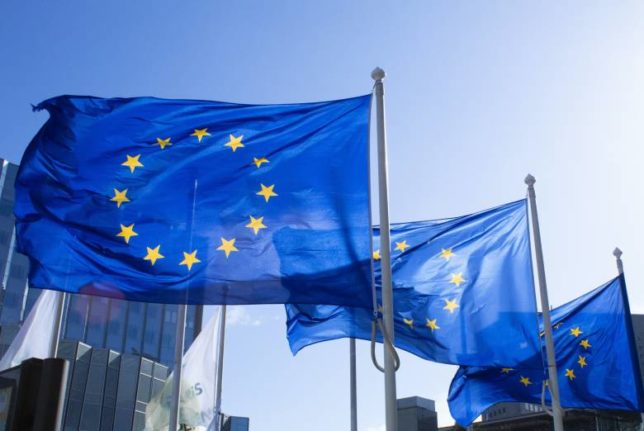Press freedom is at the centre of fresh debate in Italy this week after Spanish newspaper El País on Saturday published an article titled “Meloni wants all the media power in Italy.”
The report, which was picked up by Italian newspaper La Repubblica, suggests that the Italian prime minister and her right-wing executive is looking to “monopolise” national print and broadcast outlets
It follows reports in English-language media recently describing how Meloni is accused of trying to stamp her authority on Italian arts and media in what critics call a “purge” of dissenting voices.
Meloni and members of her administration have long faced accusations of trying to silence journalists and intimidate detractors. Media organisations say this often takes the form of high-profile politicians bringing lawsuits against individual journalists, and cite the defamation case brought by Meloni against anti-mafia reporter Roberto Saviano in 2023 as a prime example.
READ ALSO: Six things to know about the state of press freedom in Italy
Discussions over media independence aren’t new in Italy, as the country has consistently ranked poorly in the annual Press Freedom reports by Reporters without Borders in recent years. Italy came in 41st out of 180 in the 2023 ranking, which made it the worst country in western Europe for press freedom.
But what’s behind the recent allegations that the government is trying to exert a more direct influence?

National television
The article from El País accuses Meloni’s cabinet of effectively controlling Italy’s two biggest national broadcasters: state-owned RAI and commercial broadcaster Mediaset.
While Mediaset and its three main channels (Rete 4, Canale 5 and Italia 1) have long been seen as ‘loyal’ to Meloni’s executive – the network was founded by the late Silvio Berlusconi, whose Forza Italia party continues to be a key member of the ruling coalition – the government’s ties with public broadcaster RAI are more complex.
Unlike state-owned broadcasters in other European countries, RAI is not controlled by a regulatory body but rather by the government itself, which means that the network has always been particularly susceptible to political influences.
But Meloni’s cabinet is accused of exerting unprecedented power over the broadcaster following the replacement of former top executives with figures considered closer to the government.

Last May, Carlo Fuortes resigned as RAI’s CEO saying that he couldn’t possibly “accept changes opposed to RAI’s interests”. He was replaced by centrist Roberto Sergio, who in turn appointed Giampaolo Rossi – a “loyalist” of Meloni’s Brothers of Italy party – as the network’s general director.
Sergio and Rossi’s appointment was closely followed by a general management reshuffle which saw figures close to the government occupy key positions within the company. This led to critics and journalists dubbing the network ‘TeleMeloni’.
Print media
Besides concerns over its sway on Italy’s main broadcast networks, Meloni’s executive is currently under heavy scrutiny following the rumoured takeover of Italy’s AGI news agency by the right-wing Angelucci publishing group.
The group is headed by Antonio Angelucci, an MP for Deputy Prime Minister Matteo Salvini’s hard-right League party, and owner of three right-wing newspapers: Il Giornale, Libero and Il Tempo.
News of the potential takeover from Angelucci sparked a series of strikes and demonstrations from the news agency’s journalists in recent weeks, with reporters raising concerns over the independence and autonomy of journalists in the event of an ownership change.
The leader of the centre-left Democratic Party Elly Schlein weighed in on the matter last week, saying that the sale of Italy’s second-largest news agency to a ruling coalition MP would be “inadmissible”.
Further debate over press freedom in the country emerged in early March after three journalists from the left-wing Domani newspaper were accused of illegally accessing and publishing private data regarding a number of high-profile people, including Defence Minister Guido Crosetto, and the late Silvio Berlusconi’s girlfriend.
The newspaper has so far condemned the investigation, saying it is “a warning to Domani and all journalists” and a further threat to media independence in a country ranked amongst the worst in Europe for press freedom.



 Please whitelist us to continue reading.
Please whitelist us to continue reading.
Member comments